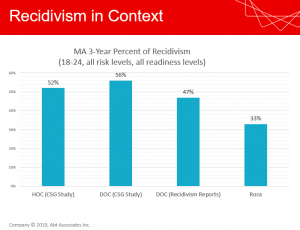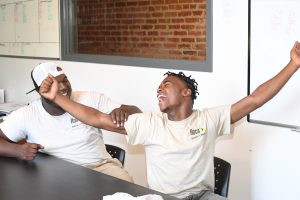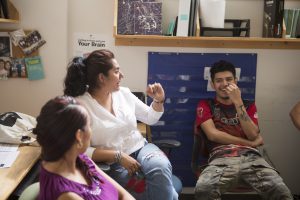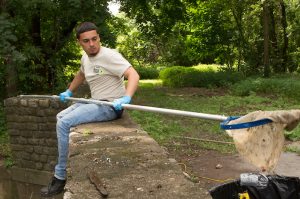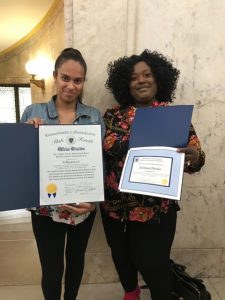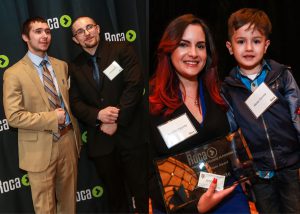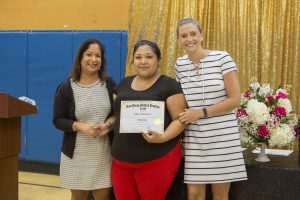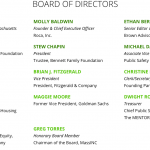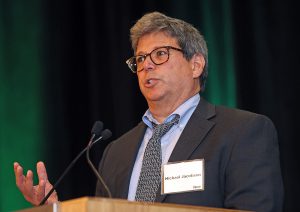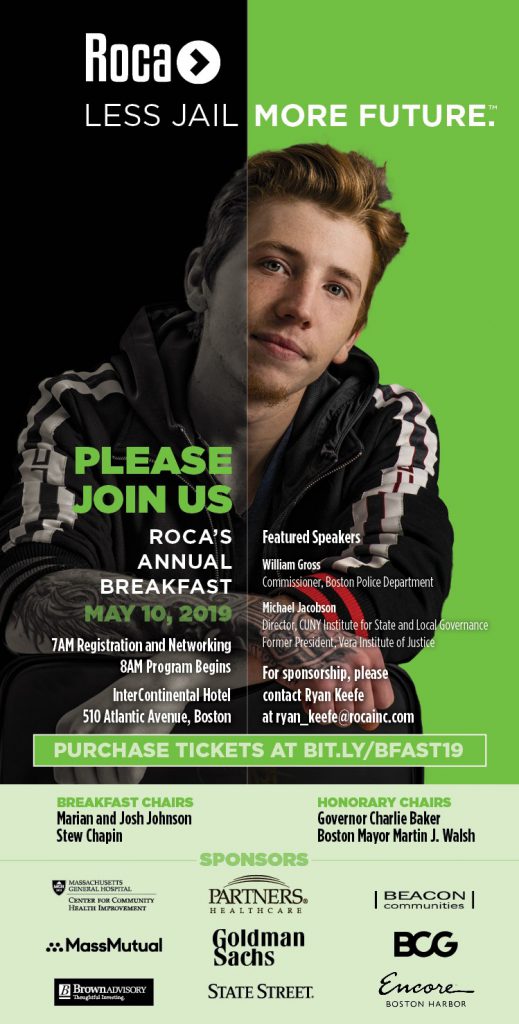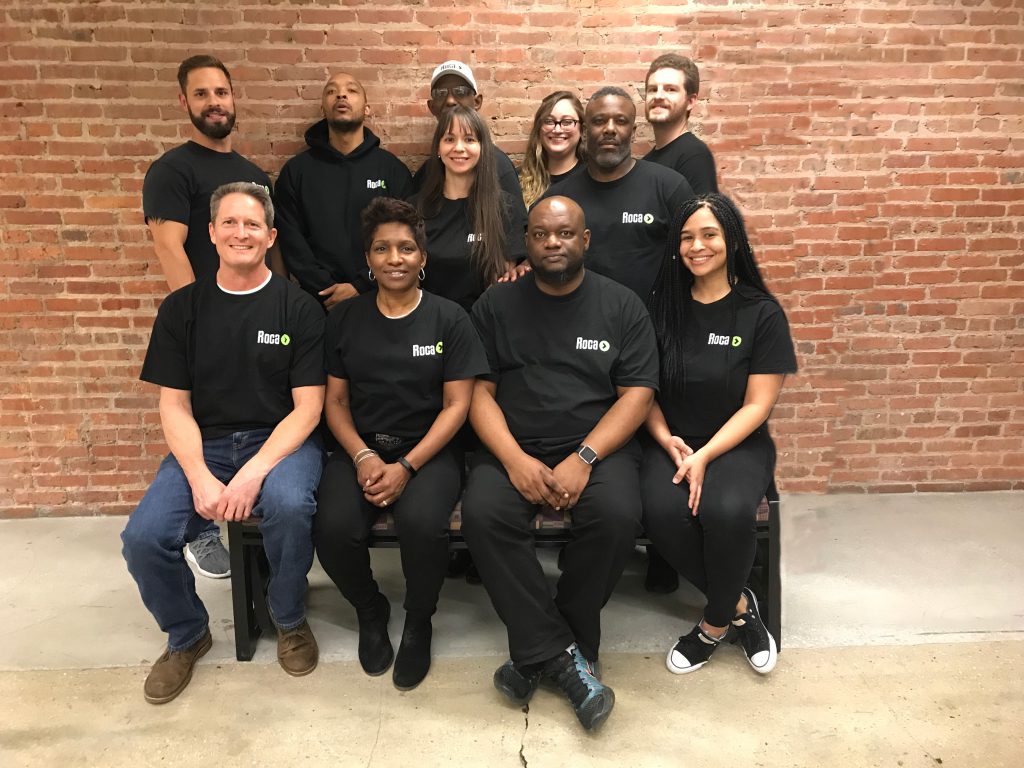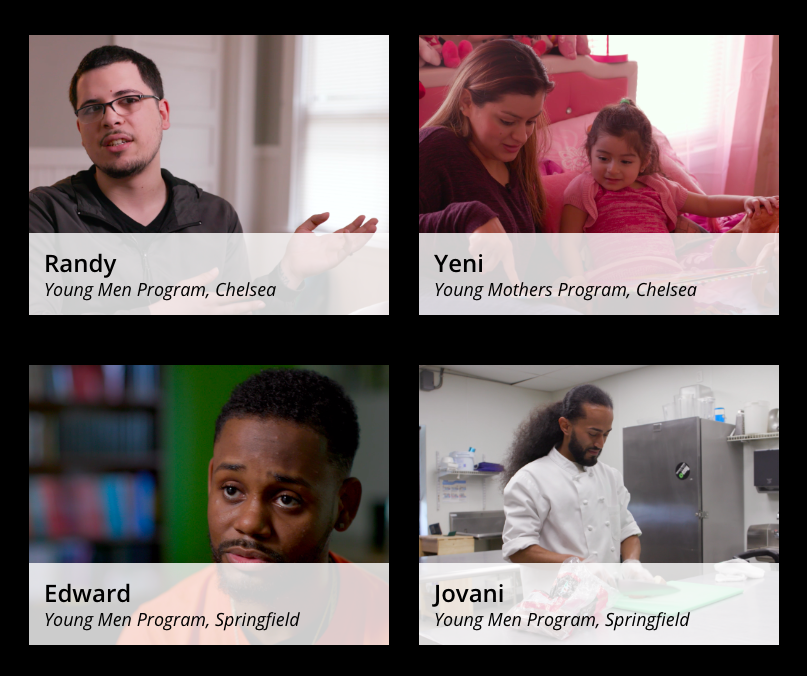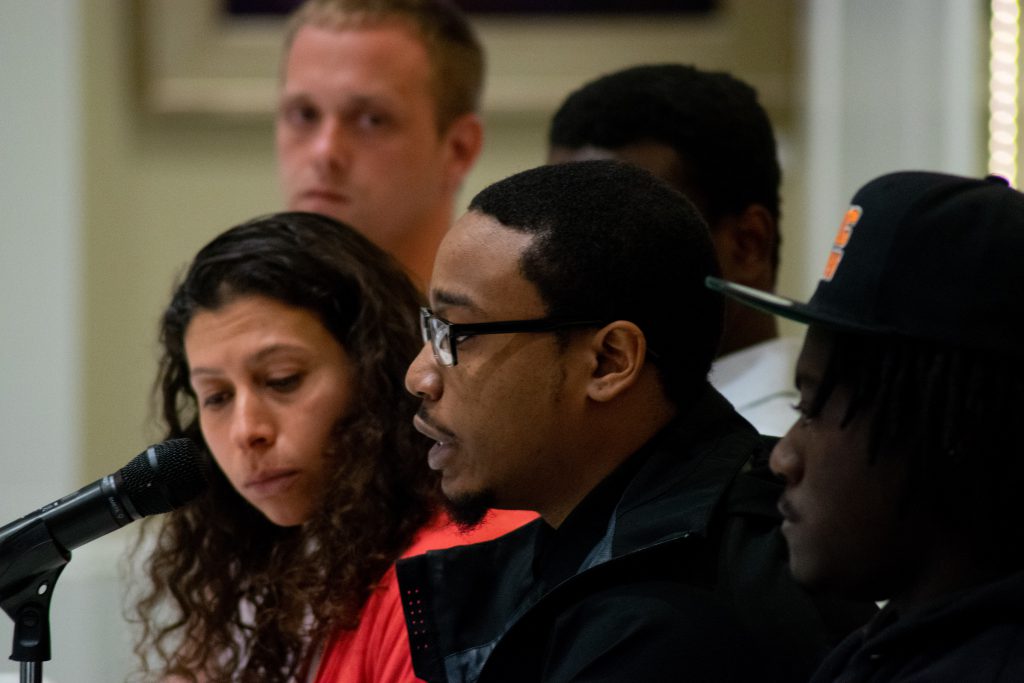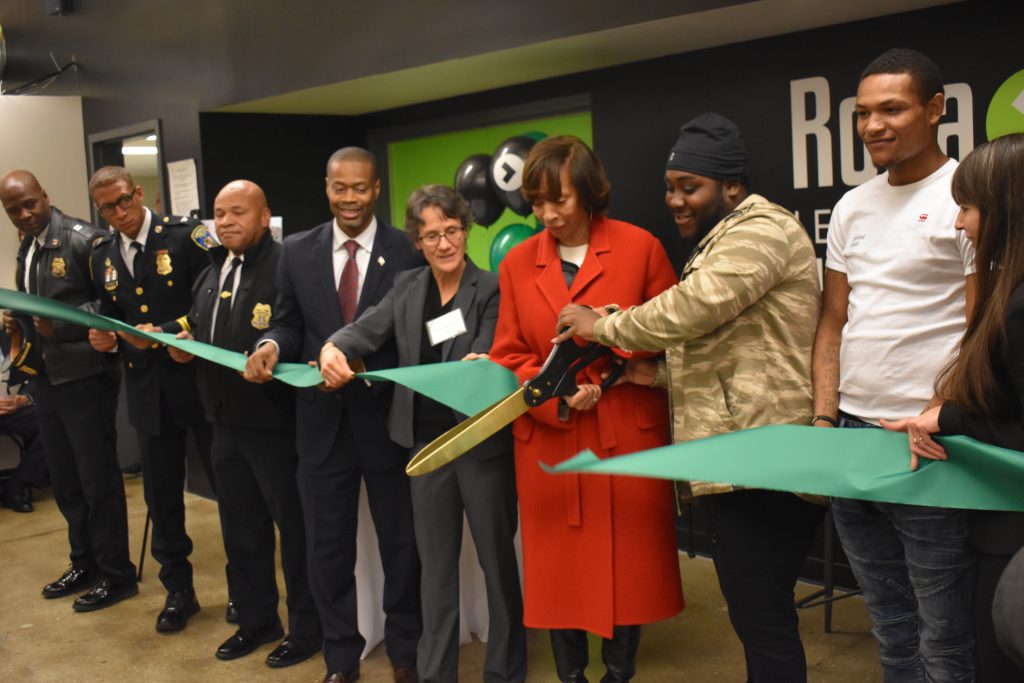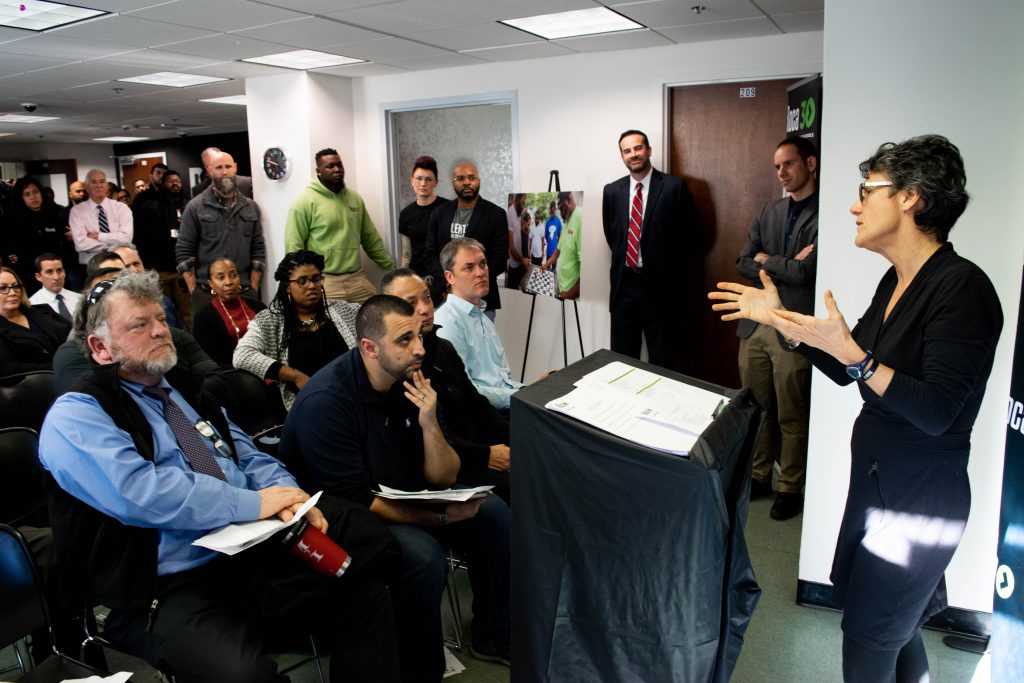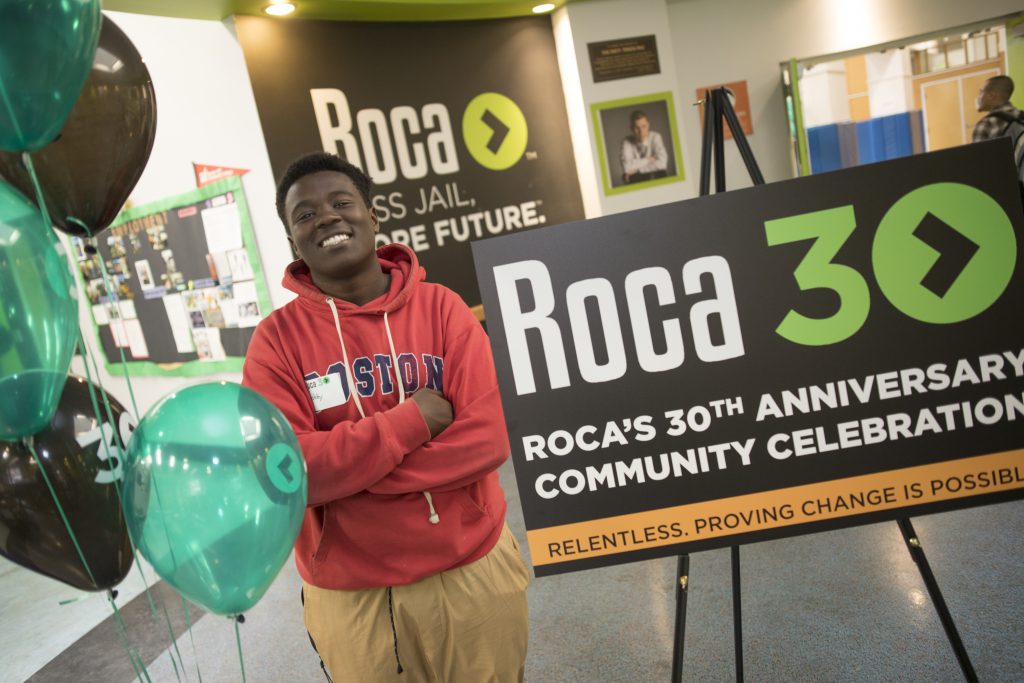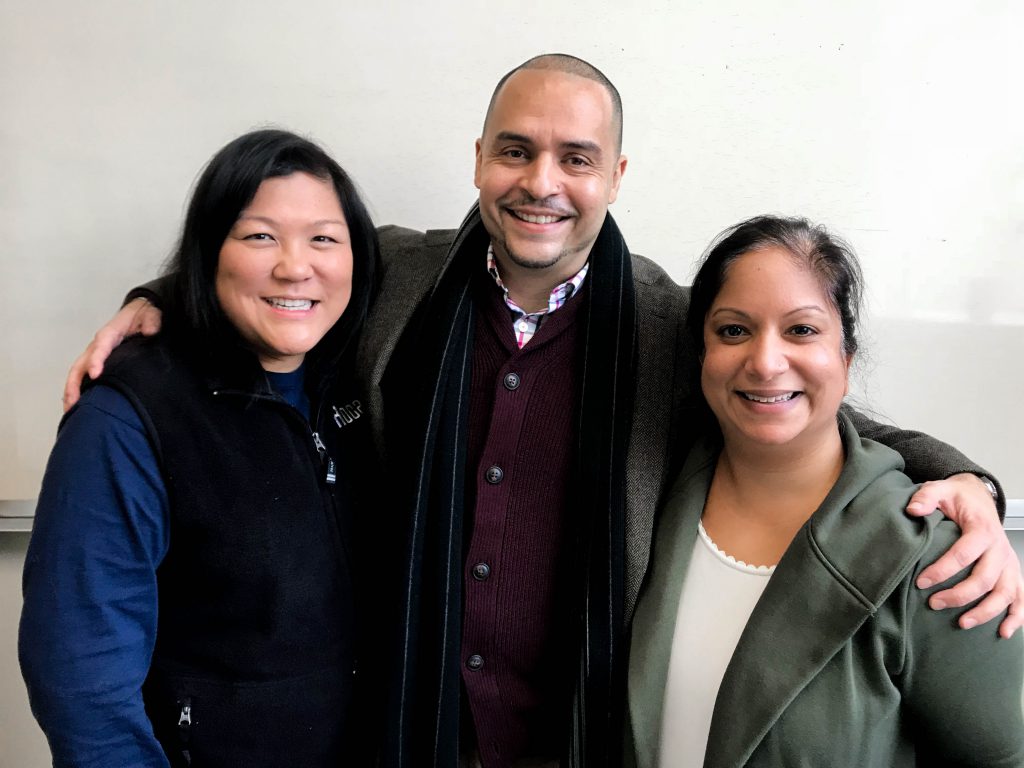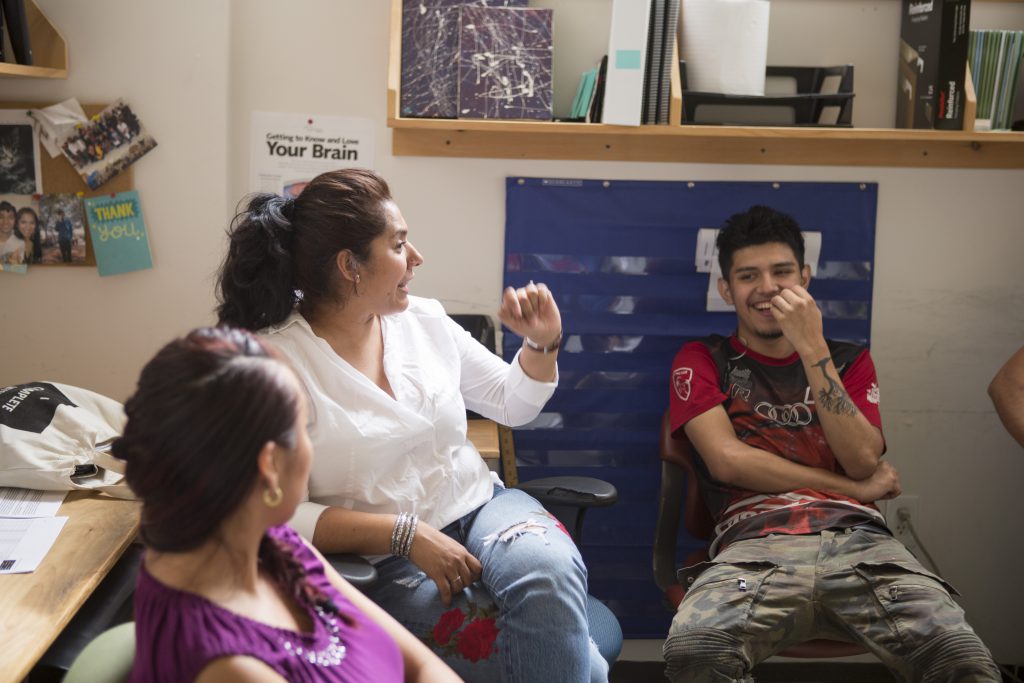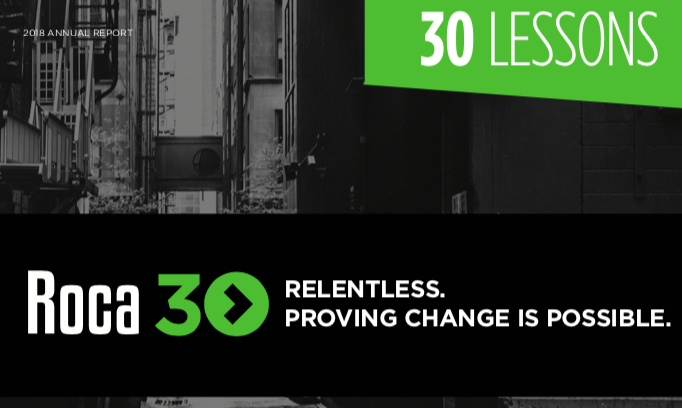Dear Friends,
This past spring was unlike any other.
As you may have heard, in April the Department of Justice abruptly stripped Roca of $4 million that was previously pledged to support our violence prevention work in Massachusetts, Maryland, and Connecticut. This was part of a massive, indiscriminate slash in funding for Community Violence Intervention across the country — hundreds of organizations received the same form letter, telling us our funding no longer aligned with the DOJ’s priorities, which they listed as combatting violent crime, supporting victims of trafficking and assault, and collaborating with law enforcement operations.
The truth is that preventing violence, reaching out to survivors of violence and human trafficking, and partnering with police to improve outcomes for both officers and young people, are exactly what we do here. Both our own data and multiple independent evaluations show that Roca is one of the most effective violence prevention programs in the country.
I won’t sugar coat it. This loss means that fewer young people at critical risk for violence — on a path that leads to jail or death — will get the support they so desperately need. Sadly, we believe this may only be the first of many cuts over the next four years.
But Roca isn’t going anywhere. We are doing everything we can to meet our commitments to young people and communities, albeit with fewer staff after eliminating almost 50 positions and with higher caseload ratios. While we have formally appealed the DOJ’s decision, we are working diligently to minimize impact on programming by looking for every opportunity to reduce non-essential expenses and by pursuing digital transformation to enhance efficiency.
Moving forward, Roca will look different. We are already considerably leaner. But we will get through this — that is our commitment to young people.
I will continue to keep you updated about our work during these extraordinary times.
Sincerely,


In the News
Sheriff Introduces Training to Help Corrections Officers Manage Stress
While regular people experience stress from traffic jams or arguments, the men and women who serve in law enforcement experience stress on a different level every day. Now, the Middlesex County Sheriff’s Department is using Roca’s Rewire CBT training aimed at helping incoming corrections officers regulate their emotions and stress.
Watch on CBS Boston
Building Stability and Achieving Goals After Experiencing Violence and Trauma
Young women behind prison walls are finding connection and opportunity in the Peace Unit, designed in partnership with Roca.
Watch on ABC Boston
In Lynn, Roca Rises to Meet High-Risk Challenge
The Item shadowed youth worker Sted Bourdeau, who dedicates his life to mentoring young men through some of the hardest — and most pivotal — years of their lives.
Read in The Daily Item
He Lost His Legs in a Shooting. Now, the Baltimore Program that Helped Him Faces Cuts.
“They were here for me,” said Marquis Milliner. “This is my family. When I don’t have anyone to talk to, I come here. When I’m going through things, I come here.”
Watch on CBS Baltimore

Roca Hartford’s First Graduates
This month, friends of Roca gathered in Hartford, CT to cheer for the first 22 young women to graduate from Roca Hartford! These graduates — and each of the 158 young women we have been privileged to serve since bringing the Young Women’s Program to Hartford in 2021 — have walked through fire. They’ve been victims of sexual violence, shootings, and stabbings. The majority are young mothers, fighting for their children.
But these traumas no longer define them — now they have new stories to tell about their lives. Roca graduate Moya said it best: “We are not statistics. We are survivors. We are stories of redemption. We are proof that broken things can still be beautiful.”
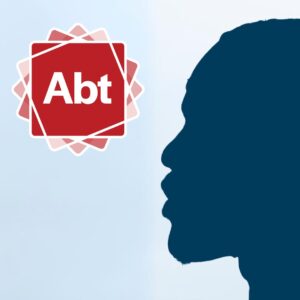
Hot off the Press
Reducing Recidivism and Stopping Violence in Baltimore
Independent evaluator Abt Global looked at young men who were released from prison in Maryland, and found that they were 19% more likely to stay out of jail after 3 years if they came to Roca. Because this study occurred during the COVID pandemic, we expect current and future reductions to be even more promising.
Efforts by Roca, the Baltimore Mayor’s office, the police, and many others are all adding up to a safer Baltimore. Last year, homicides in the city dropped to their lowest point in a decade, and so far 2025 is on track to be the safest year in half a century. Unfortunately, recent devastating cuts to federal funding for community violence intervention threaten this progress.

Mental Health
Sheldon at the UJC Summit
Roca Baltimore’s Sheldon Smith-Gray took the stage at the United Justice Coalition Summit alongside Baltimore Mayor Brandon Scott and mental health advocates to explore innovative alternatives to traditional law enforcement responses to mental health crises. These approaches aim to provide more effective, compassionate care while reducing the risk of escalation, unnecessary arrests, and use-of-force incidents.
Sheldon was one of Roca Baltimore’s first participants, and the first Roca Baltimore graduate to join the Roca staff. He is now a Life Skills Instructor, teaching the highest-risk young men essential skills to live out of harm’s way.
Last year, Sheldon was the victim of a shooting. He survived, but his cousin, also a Roca graduate, was killed. In this conversation, Sheldon opens up about how he maintained his progress and integrity as a violence interruption worker instead of choosing retaliation.

Improving our Intervention
Roca’s Impact Peaks at 3 Years
The highest-risk young people also tend to be the most resistant to change, which is why Roca’s intervention model lasts years, not months. On average, it takes 18–24 months before violence-involved young people start to experience lasting change, and the most profound reductions in violence and recidivism show up in year 3 of intensive services.
But longer isn’t always better. Roca has been a 4-year program since 2011, but new data shows that young people only need 3 years with Roca to transform their lives. The new, 3-year intervention model will let Roca serve more young people at a lower cost, while still setting each young person up for the same success that Roca is known for.
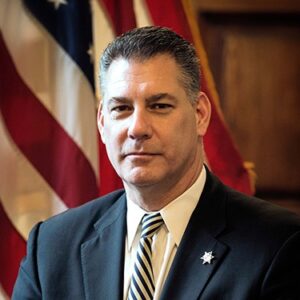
Rewiring Corrections
Honoring Sherriff Peter Koutoujian
In Middlesex County, MA, every single Corrections officer knows that what they think, feel, and do, are all connected. They’ve all been trained in Rewire CBT, the same behavioral and emotional regulation skills Roca teaches to the highest-risk young people. It helps them cope with high-stress situations, and diffuse crises that would have escalated in the past.
Sherriff Peter Koutoujian, a national leader in the Corrections field, was the driving force behind this ambitious program. At Roca’s Annual Breakfast, he shared why he thinks Rewire CBT is making Middlesex County Corrections “better, safer, and more humane.”
Sherriff Koutoujian received the 2025 James E. Mahoney Award for innovative leadership, humility, and commitment to systemic change on behalf of young people.

Spotlight on Young Women
Bringing Human Trafficking Out of the Shadows
Trafficking is on the rise among the most vulnerable women and girls in Massachusetts and Connecticut — a recent study by TIER found that more than 1 in 3 young women served by Roca are victims of sex and labor trafficking. In response to this growing need, we’re sharpening our ability to identify victims of trafficking, and learning more about how to serve them.
After a lifetime of poverty and trauma, many young women don’t even recognize what’s happening to them as exploitation. They won’t accept help at first, but Roca Youth Workers are patient — we keep showing up relentlessly, building a sense of safety and trust over time. Their traffickers want to keep them isolated and dependent, so we focus on building their confidence and sense of connection. Along the way we celebrate each small victory, until they’re ready to let us in and see where change could take them.
According to TIER, once young women decide to engage with us, they improve their mental health, experience less domestic violence, and experience more stability in their lives.
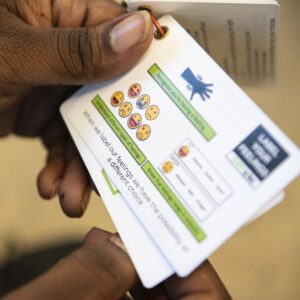
Learn a Rewire CBT Skill
Rewire CBT is a relatable and non-clinical version of cognitive-behavioral therapy that helps young people heal from trauma and rewire their brains to achieve long-term behavior change. The 7 Rewire CBT skills help young people understand the relationship between what they think and say in their heads, what they feel in their bodies, and what they do in response.
Rewire CBT Skill #5 Stick With It
Think of the last time you wanted to run away from a problem — maybe you messed up at work and dreaded telling your boss, or you received upsetting news that you couldn’t handle. You wanted to distract yourself to feel better, fast. But that feeling of intense discomfort didn’t really go away until you faced up to the problem.
When young people come to Roca, they’re caught in a state of constant crisis, dealing with more than most adults have to handle. Stick With It teaches them to tolerate their discomfort, instead of avoiding it by engaging in behaviors that could get them into trouble — like skipping work, numbing out with drugs, or putting themselves in dangerous situations.
Ultimately, this Stick With It skill helps young people build resilience. The faster they face their challenges head on, the faster they can move past them.
“Now, when I get upset at things, I don’t lash out. I don’t do nothing. I remain calm, I take a deep breath… I’ve come a long way.”
— Esme


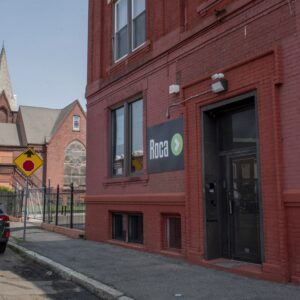

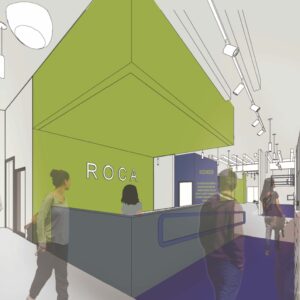
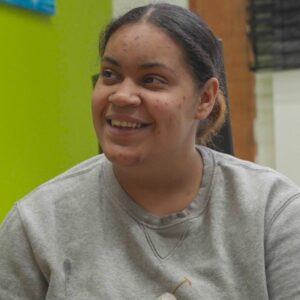

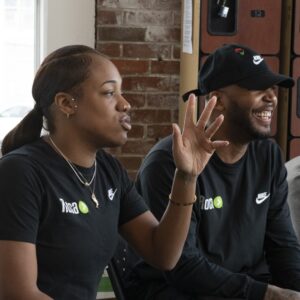
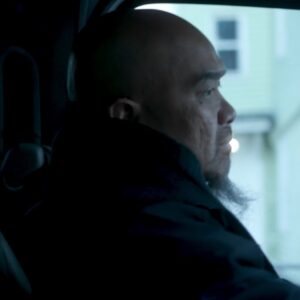



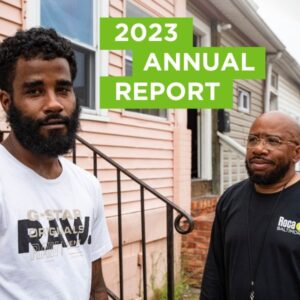
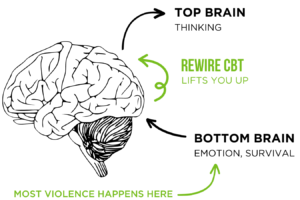
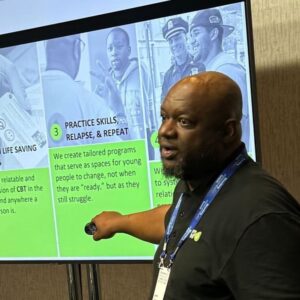
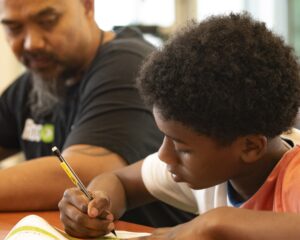
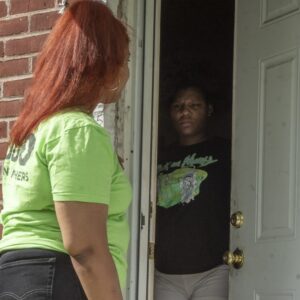


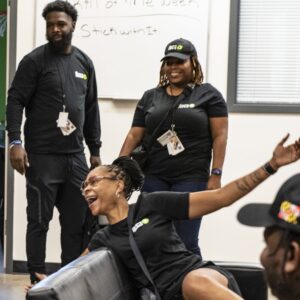



 These days Sedale is a positive role model for his young son. He holds down a career in maintenance with plenty of room for growth, is a talented musician, and dreams of one day starting his own painting business.
These days Sedale is a positive role model for his young son. He holds down a career in maintenance with plenty of room for growth, is a talented musician, and dreams of one day starting his own painting business.


